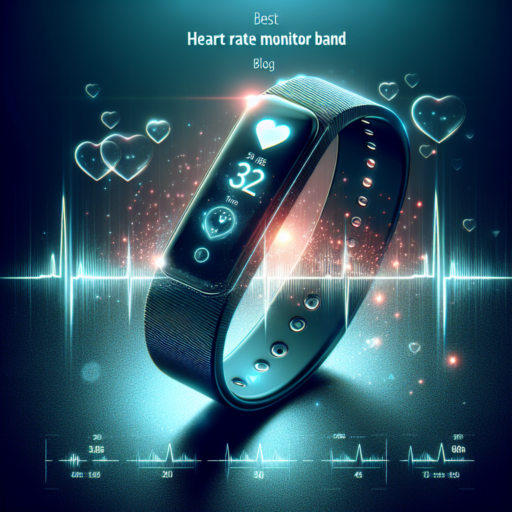What is the most accurate heart rate strap?
When exploring the realm of fitness technology, one often encounters the question: What is the most accurate heart rate strap? The accuracy of a heart rate strap is paramount for athletes, fitness enthusiasts, and individuals monitoring their cardiac health. These devices, designed to be worn around the chest, ensure precise heart rate readings by capturing electrical signals directly from the heart, making them significantly more accurate than wrist-based monitors.
The precision of heart rate straps largely stems from their proximity to the heart and their method of detection. Unlike wrist monitors that use optical sensors to estimate your pulse by shining light through your skin, chest straps detect the electrical activity of your heart. This method is akin to an Electrocardiogram (EKG or ECG), offering a high degree of accuracy which is essential for tailoring exercise intensity, maximizing workout efficiency, and monitoring heart health.
Amongst the multitude of options available, certain brands and models stand out for their exceptional accuracy. Models manufactured by companies like Polar, Garmin, and Wahoo are frequently cited for their reliability and precision. These straps often feature enhanced connectivity options, such as Bluetooth and ANT+, ensuring seamless integration with various fitness devices and apps.
It’s important to note, however, that the most accurate heart rate strap for one individual may not be the same for another. Factors such as proper fit, skin contact, and individual physiological differences can influence the accuracy of readings. Therefore, users should consider their specific needs, compatibility with other devices, and comfort when selecting a heart rate strap.
What is the best wearable device to monitor your heart?
When it comes to monitoring heart health, the best wearable device often depends on a combination of personal needs, accuracy, and ease of use. Wearable technology has advanced significantly, allowing for continuous heart rate monitoring to detect irregularities and track overall cardiovascular health. Among the leaders in this innovative field, smartwatches and specialized fitness trackers have emerged as top contenders for effectively monitoring heart activity.
Smartwatches, particularly those designed with health in mind, offer a wide range of features beyond just heart rate monitoring. They seamlessly integrate health metrics into daily life, allowing users to receive notifications for high or low heart rates and irregular rhythms, which could signal potential health issues. Some models even include ECG (electrocardiogram) capabilities, providing insights comparable to clinical devices. The convenience of having these advanced features wrist-bound makes smartwatches a popular choice among health-conscious individuals.
On the other hand, specialized fitness trackers are designed with a focus on physical activity and health monitoring, making them ideal for those dedicated to fitness and wellness. These devices often offer more precise heart rate monitoring, catered to tracking during intense workouts and throughout the day. They can provide valuable data on heart health trends, recovery rates, and exercise impact over time. While they may lack some of the broader functionalities of smartwatches, their focus on health metrics often makes them a more suitable option for those prioritizing heart monitoring.
How accurate are armband heart rate monitors?
Armband heart rate monitors have become popular tools for fitness enthusiasts and athletes looking to optimize their workouts by tracking their heart rate. However, the accuracy of these devices is a topic of much debate. Several factors influence the precise monitoring of heart rate, including the technology used in armbands, placement on the body, and the type of activity performed.
The technology behind most armband heart rate monitors is optical heart rate technology. This works by using LEDs to penetrate the skin and detect blood flow. While this method allows for continuous monitoring without the need for a chest strap, its accuracy can be affected by light interference, skin tone, and even tattoo ink. Therefore, while generally reliable, these monitors might sometimes display slight variances from true heart rates, especially during intense physical activity or if the armband shifts on the arm.
Comparison with Chest Strap Monitors
Armband monitors are often compared to chest strap monitors, which measure the electrical activity of the heart and are generally considered the gold standard for heart rate monitoring accuracy. Although armband monitors offer more comfort and convenience, they can occasionally lag in providing real-time data or misread heart rate due to motion artifacts. Nonetheless, for most daily activities and moderate exercise routines, armband monitors provide sufficiently accurate data for heart rate tracking.
No se han encontrado productos.
Are heart rate straps better than watches?
When it comes to monitoring heart rate, the debate between heart rate straps and watches is ongoing. Many athletes and fitness enthusiasts ponder which device provides the most accurate and reliable data. Heart rate straps, worn around the chest, are often touted for their precision and closeness to the heart, potentially offering a more direct measurement of heart rate than watches worn on the wrist.
One of the key advantages of heart rate straps is their consistent contact with the skin, which minimizes the risk of data interruption. This is crucial during high-intensity activities or movements that can cause a wrist-based device to shift, potentially compromising the accuracy of the readings. Furthermore, the technology utilized in heart rate straps is generally geared specifically towards capturing the most accurate heart rate signals, emphasizing their reliability.
However, it’s important to note that advances in technology have significantly improved the accuracy of wrist-based heart rate monitors. Modern sports watches incorporate sophisticated sensors that not only track heart rate but also offer a plethora of additional features like GPS tracking, step counting, and more. This convenience factor is a significant consideration for many users who prefer an all-in-one device over wearing a separate heart rate strap.



